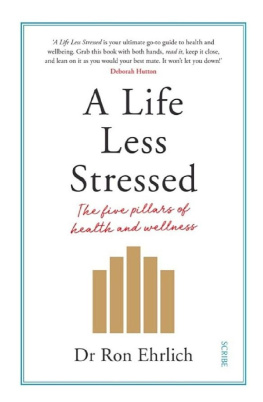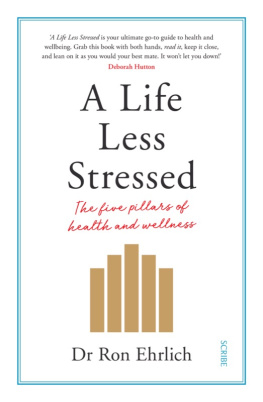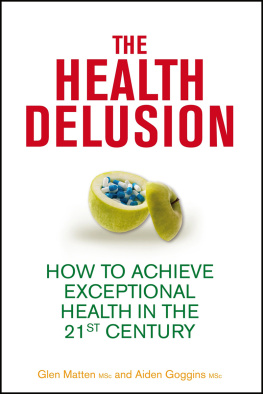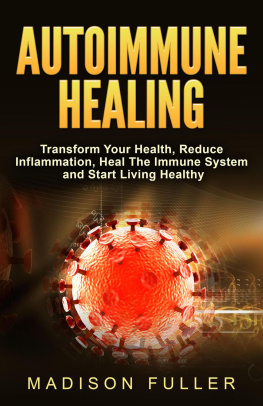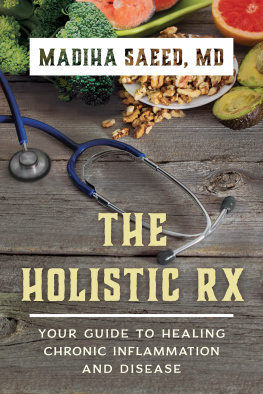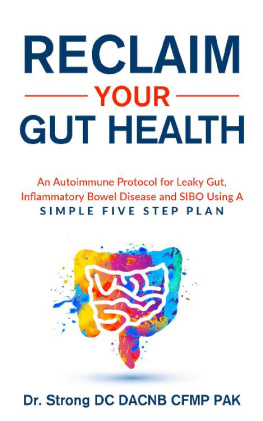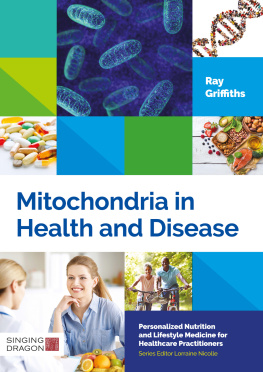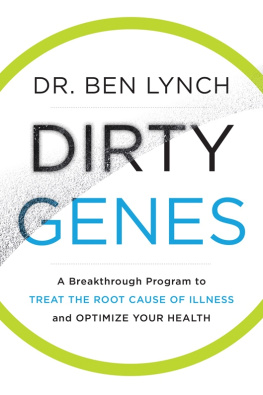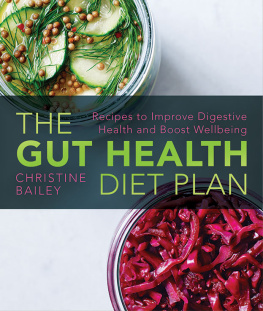A LIFE LESS STRESSED
Ron Ehrlich, BDS (Syd Uni), FACNEM, is a holistic dentist and one of Australias leading holistic-health advocates. As co-founder of the Sydney Holistic Dental Centre, Ron has been in private practice in the Sydney CBD for over 35 years. Having received his fellowship from the Australasian College of Nutritional and Environmental Medicine in 1996, he went on to serve on the board and as vice-president of the college. He is also co-founder and a board member of Nourishing Australia, a not-for-profit organisation dedicated to promoting nutritional and environmental health. In his new podcast, Unstress , as well as in presentations and workshops, he explores and expands on the themes outlined in this book.
drronehrlich.com

Scribe Publications
1820 Edward St, Brunswick, Victoria 3056, Australia
2 John Street, Clerkenwell, London, WC1N 2ES, United Kingdom
First published by Scribe 2018
Copyright Ron Ehrlich 2018
All rights reserved. Without limiting the rights under copyright reserved above, no part of this publication may be reproduced, stored in or introduced into a retrieval system, or transmitted, in any form or by any means (electronic, mechanical, photocopying, recording or otherwise) without the prior written permission of the publishers of this book.
Neither the publisher nor the author is engaged in rendering professional advice or services to the individual reader. The ideas, procedures, and suggestions contained in this book are not intended as a substitute for consulting with your physician. All matters regarding your health require medical supervision. Neither the author nor the publisher shall be liable or responsible for any loss or damage allegedly arising from any information or suggestion in this book.
Patients names, identifying characteristics, and certain other details regarding their stories have been changed to protect their confidentiality.
9781925322491 (ANZ edition)
9781911344834 (UK edition)
9781925548792 (e-book)
CiP entries for this title are available from the National Library of Australia and the British Library.
scribepublications.com.au
scribepublications.co.uk
Contents
PART 1: Understanding Public Health Messages
PART 2: Redefining Stress
PART 3: Taking Control of Your Health
Key Concepts Defined
Introduction
Whenever I mention I have written a book about stress, almost everyone gives a familiar sigh and says: I need a book like that! The fact that you are reading this now means you, too, can relate. Chances are you have picked up this book because you also feel stress is affecting your life and, ultimately, your health. There seems to be almost universal agreement that stress has become ubiquitous in our modern world.
Over the last 10,000 years, we have moved through the agricultural revolution, the scientific revolution, and the industrial revolution. Each one has posed huge challenges and changes for us, both as individuals and as societies. Today, we live in the technological age, an era of globalisation, economically, politically, and culturally. We find ourselves in a time when corporations exert influence on politics, governments, our environment, and even our health and whether we realise it or not, that influence is unprecedented.
We are living in challenging times, and many people are justifiably feeling let down by big business. The last 40 years have delivered huge financial gains for global corporations to less than the top 1 per cent of the global population. And while many in the developing world have been lifted out of poverty, many in the developed world have seen no benefit from this economic growth; there has been no trickle-down effect. Instead, lifestyle improvements have been achieved and maintained through unprecedented access to credit, through higher personal debt, and by working harder than ever.
There was a time prior to globalisation, particularly in Australia, the United Kingdom, and Europe, when education and healthcare were free for everyone, irrespective of social class. In Australia, for example, the government owned the major banks, telecommunication and postal services, and water, electricity, and gas utilities and we as taxpayers benefited from this.
Today, these same institutions have been sold off, privatised, and listed on the stock exchange. In a strange twist of economic logic, we can now invest in these very companies and some of us even go to the extent of borrowing money to buy shares in services we all once owned. As we are encouraged to be good consumers rather than good citizens, the gap between rich and poor has never been greater.
Its no coincidence that 50 years ago, chronic degenerative diseases, autoimmune diseases, and mental-health conditions were not the problems they are today. Over the last four decades, health messages have been confusing and often contradictory, while even basics such as our food, our health, and the health of our planet have become commodities.
I can still remember a time when the technological revolution we now find ourselves in promised more leisure time and a golden age for all. And yet, we all seem to be eternally busy, with no chance to escape emails, news cycles, and constant engagement through an ever-increasing range of social-media platforms. As the social, economic, and political pendulum swings, we have certainly overshot the mark. What happened to that promise? I am still an optimist and believe the golden age is achievable, but time is running out and things have to change. Rather than measuring the success of a country or community in purely economic terms, we need to place the health of individuals, communities, and the environment as the central measure of a successful and sustainable society.
People today are stressed
In fact, life, it seems, has never been more stressful. I doubt whether those who have endured the horrors of war, economic depression, or famine would agree, yet our perception of what we as individuals consider stressful is relative and that perception is real and (as you will see) has an impact on our health.
One thing is certain: today, people of all ages are exposed to more outside influence and potential stress than ever before uncounted chemicals in our food, homes, and environment; foods that our ancestors wouldnt recognise as food; electromagnetic radiation in our pockets, offices, and homes; access to more information than existed even a few years ago; and a 24/7 news-and-entertainment feed together with an unrelenting torrent of social-media updates.
We hear about every disaster or murder in each far-flung corner of the world at the very moment it happens. Its hard to believe that we live in the most peaceful time in human history. The wars of the first half of the 20th century could see tens of thousands of people killed in a single day casualties from those conflicts ran into the tens of millions. The terror attacks we are so afraid of, that we hear about in almost every news cycle, are actually fewer than occurred in the 1970s. Just as we have access to each attack or disaster in the palm of our hands, it also gives each attack an immediacy and intimacy that is unique in our human experience, making life seem even more stressful.
According to the World Health Organisation (WHO), in 2012 globally 120,000 people died in war or military conflict, 800,000 committed suicide, while 1.5 million people died of diabetes. Going by the evidence, it would seem we are at greater risk from harming ourselves than being harmed by terrorists with sugar being the greatest danger of all.
While we congratulate ourselves on how long we are living, preventable chronic degenerative diseases are reaching epidemic proportions, affecting more people than ever before and at ever-younger ages. If our children are the canaries in the coal mine, things are looking bleak. Theirs may be the first generation where life expectancy is reduced compared to that of their parents.
Next page
